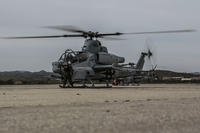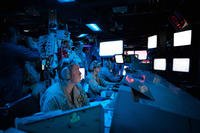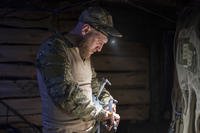WAR WON'T END IRAQ INSPECTIONS
After the U.S. knocks Saddam out of Iraq, Hans Blix's inspectors -- or their military equivalents -- will be back hunting for Iraq's biological and chemical weapons.
U.S. forces will try to wipe out as many chemical, biological and nuclear weapons programs as they can, argues Jeffrey Knopf, of the Naval Postgraduate School. But "given the extent of Iraq's concealment efforts, however, it will be impossible to be confident that all key sites have been identified or that they have been fully destroyed by military strikes To be sure that Iraq is disarmed of its existing stocks of and potential to produce weapons of mass destruction (WMD) will require the resumption of inspections."
It's unlikely that a pliant new Iraqi regime will be able to help the inspectors much (although they won't hinder efforts, like Saddam is doing):
New governing authorities are unlikely to have full knowledge about Iraq's weapons programs. If a U.S. military or civilian official is appointed to run the country@ such administrators will not have been privy to the secret details of Saddam's WMD efforts. Even if a new government of Iraqi nationals is created the new leaders are unlikely to have insider knowledge.
(In addition), central authorities might not control all parts of Iraqi territory. More than a year after the defeat of the Taliban, the Karzai government in Kabul still does not exercise authority over sizable portions of Afghanistan. The same situation could arise in Iraq given its divisions into Shiite-, Sunni-, and Kurdish-dominated regions.
(Lastly), removing Saddam does not guarantee full Iraqi cooperation. Many Iraqis might welcome Saddam's departure but, because of nationalist pride or suspicion of U.S. motives, still not wish to assist the United States and its partners in eliminating Iraq's WMD potential.
"If the United States and its partners want to be sure they have destroyed every weapon of mass destruction and closed down every research and production program, they will have to follow up aggressively on every piece of information they acquire," Knopf concludes. "The kind of detective work involved looking for and pursuing leads, seeking to make surprise visits, tying up loose endseis exactly what the inspectors currently in Iraq are doing."








